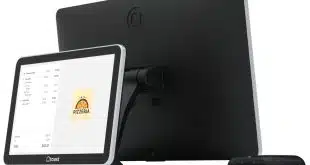With a Federal Reserve deadline hitting Wednesday for comments on decade-old debit card regulations, large merchants are firing some last-minute salvos in hopes of influencing the Fed to make major revisions to rules governing transaction routing and pricing.
“[M]ajor banks and networks continue to interfere with competition for debit business,” contends a release issued early in the day from the Merchants Payments Coalition, a trade group representing supermarket, convenience-store, gasoline, and other retail chains. The group’s statement calls on the Fed to follow through on a proposal that underscores merchant choice in routing debit transactions.
Specifically, the Fed on May 7 invited comments on a proposed clarification to its rules implementing the 2010 Durbin Amendment that would specify that merchants must have a choice of at least two unaffiliated networks for routing card-not-present transactions. The proposal came in response to widespread merchant complaints that larger banks were routing online debit transactions to the Visa or Mastercard networks in preference to a dozen or so alternative debit switches, such as Pulse, NYCE, or Shazam. Merchants have long contended the alternative systems offer lower pricing and improved security.

Only a small percentage of online debit transactions are routed to the alternative switches because “some of the largest banks” have not enabled technology that would send payments without accompanying PINs to those systems, according to the merchant group, citing research the Fed published earlier this year. So-called PINless transactions are common in e-commerce, which relies on computers and mobile apps and where PIN entry is typically bypassed.
The issue has taken on greater urgency as e-commerce transactions have multiplied with consumers flocking to online sites in response to the pandemic. U.S. e-commerce sales totaled $215 billion in the first quarter, up 39% from the same time last year, according to preliminary numbers from the Census Bureau. That figure accounts for a 13.6% share of all U.S. retail sales, up from 11.4% a year ago.
As a result, the “lack of routing” choice in online commerce costs sellers “billions of dollars each year,” the MPC’s statement argues. Digital Transactions News reached out to the Electronic Payments Coalition, a group that represents issuers and payment networks, for comment on the MPC’s contentions, but did not immediately receive a response.
The MPC’s release also argued that the Fed should lower the cap the Durbin Amendment placed on the fees large banks can charge merchants for debit transactions. Under the law, institutions with more than $10 billion in assets—the so-called covered issuers—are restricted to a fee of no more than 21 cents, with allowances of another penny for fraud-prevention measures and 0.05% of the sale for recovery of fraud losses.
The call comes in response to a recent Fed survey indicating the average cost of debit processing had dropped from around 8 cents per transaction in 2009 to just under 4 cents in 2019.
As for online traffic specifically, the Fed report indicates this sustained $12.40 in fraud losses per $10,000 in volume in 2019, up from $7.80 in 2011. Merchants absorbed 56.3% of these losses, up from 52.8% in 2017, indicating that percentage could be even higher now with e-commerce volume booming.
Merchants have long argued the Fed’s pricing allowance for big banks is too liberal given the language of the law. They ratcheted up the heat on the Fed recently with a lawsuit. The case, filed in May in U.S. District Court in Bismarck, N.D., by the North Dakota Retail Association and the North Dakota Petroleum Marketers Association, argues merchants have paid “billions” of dollars more than they would have had the Fed followed the letter of the Durbin Amendment.





